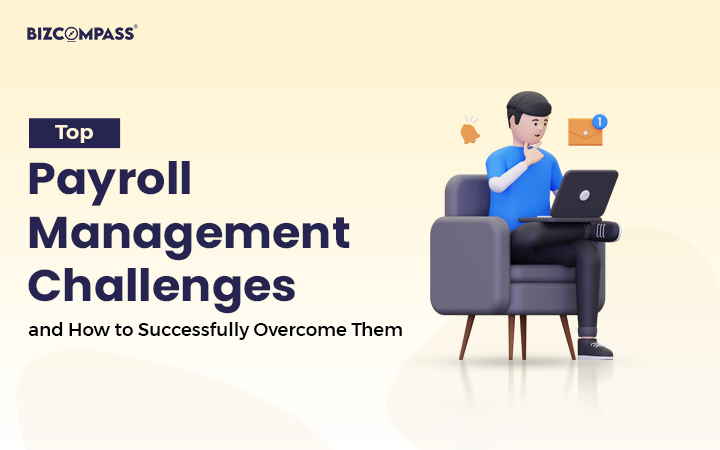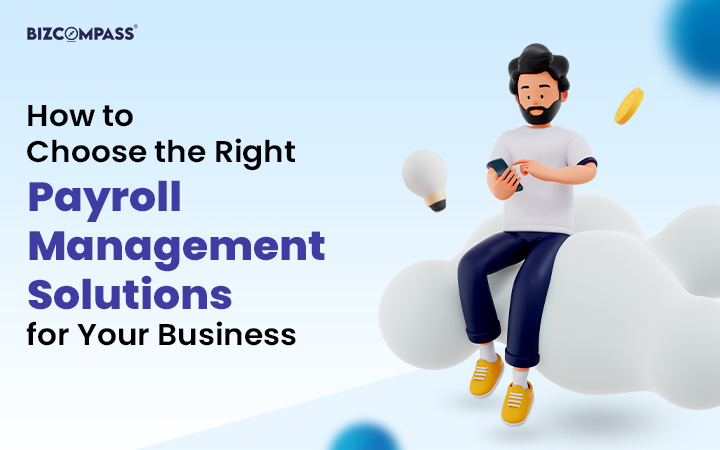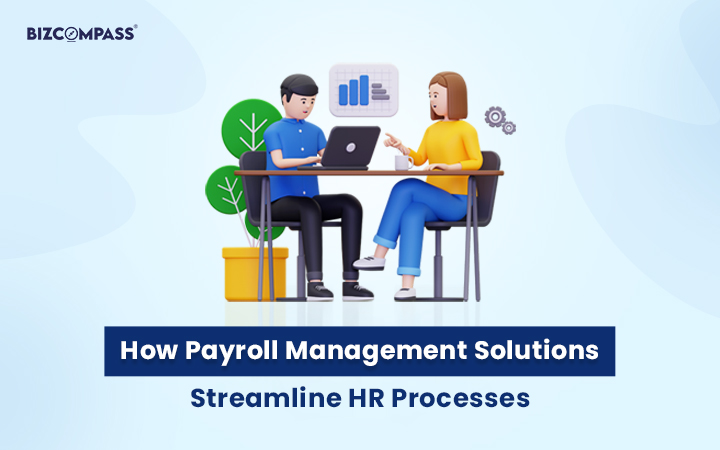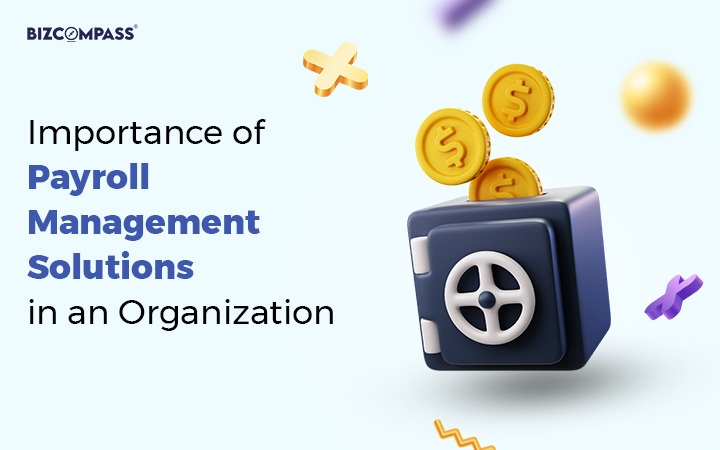Introduction
Payroll management refers to the process of administering and managing the financial aspects related to employee compensation within an organization. It encompasses tasks such as calculating wages, deducting taxes and benefits, issuing paychecks or direct deposits, and maintaining accurate records of employee earnings and deductions.Â
Efficient payroll management is crucial for several reasons. Firstly, it ensures that employees are compensated accurately and on time, contributing to their job satisfaction and morale. Â
This, in turn, can enhance employee retention and productivity levels within the organization. Secondly, accurate payroll management helps in compliance with various legal and regulatory requirements related to taxation, labor laws, and employee benefits.Â
Failing to comply with these regulations can result in penalties and legal issues for the organization. Additionally, effective payroll management plays a vital role in financial planning and budgeting by providing accurate data on labor costs and expenses.Â
Despite its importance, payroll management poses several challenges for organizations. One common challenge is the complexity of tax regulations and laws, which can be difficult to navigate and comply with accurately. Changes in tax laws, rates, and regulations further add to this complexity, requiring continuous monitoring and updates.Â
Another challenge is the need for accuracy and precision in calculations, as even minor errors can lead to discrepancies in employee compensation and potential legal issues.Â
Additionally, managing payroll for a diverse workforce with varying compensation structures, benefits, and deductions can be challenging, particularly for multinational organizations operating in different jurisdictions with diverse regulatory requirements.Â
Efficient payroll management is essential for ensuring accurate and timely compensation for employees, compliance with legal and regulatory requirements, and effective financial planning.Â
However, organizations often face challenges such as navigating complex tax regulations, ensuring accuracy in calculations, and managing diverse compensation structures. Overcoming these challenges requires robust systems, processes, and ongoing monitoring to ensure smooth payroll operations. Let’s explore this topic in detail to get a hold of it comprehensively.Â
Challenges In Payroll Management
01 Compliance with Regulations and LawsÂ
Payroll management involves adherence to a myriad of federal and state regulations governing areas such as minimum wage, overtime pay, and employee classification.Â
Ensuring compliance with these regulations requires meticulous attention to detail and staying updated with any changes or amendments. Payroll managers must navigate complex tax laws at the federal, state, and local levels. Keeping abreast of tax law changes, updates, and deadlines is crucial to accurately withhold and remit taxes on employee wages.Â
02 Accuracy and Data ManagementÂ
Payroll processing involves extensive data entry, leaving room for errors such as incorrect hours worked, wage rates, or benefit deductions.Â
These errors can result in inaccurate employee compensation and regulatory non-compliance, necessitating meticulous review and validation processes.Â
Managing and updating employee information, including personal details, tax withholding forms, and benefit elections, presents a challenge.Â
Failure to maintain accurate records can lead to discrepancies in payroll processing and compliance issues, highlighting the importance of robust data management systems.Â
03 Time-Consuming ProcessesÂ
Traditional payroll systems relying on manual calculations and paperwork are time-consuming and prone to errors. Processing payroll manually involves tedious tasks such as calculating wages, taxes, and deductions, as well as preparing and distributing paychecks or paperwork.Â
Tracking employee work hours, managing attendance records, and reconciling discrepancies can be time-consuming tasks for payroll managers.Â
04 Security and ConfidentialityÂ
Payroll management involves handling a vast amount of sensitive employee information, including social security numbers, bank account details, and salary information. Ensuring the security of this data is paramount to prevent unauthorized access, identity theft, or fraud.Â
In addition to protecting sensitive data, payroll managers must also ensure compliance with data privacy regulations. These regulations impose strict requirements on the collection, storage, and processing of personal data, including employee information.Â
Compliance involves obtaining consent for data processing, providing transparency about data practices, and implementing measures to fulfill data subject rights such as access, rectification, and erasure. Non-compliance with data privacy regulations can result in significant fines.Â
How Payroll Solutions Address These Challenges
01 Compliance AutomationÂ
These solutions often integrate with tax software systems to automatically receive updates on federal, state, and local tax laws and regulations. This integration enables payroll managers to stay informed about changes in tax rates, withholding requirements, and filing deadlines, ensuring accurate and timely compliance without manual intervention.Â
Payroll solutions incorporate automated compliance checks that validate payroll data against regulatory requirements and flag any discrepancies or non-compliance issues.Â
These checks encompass various aspects such as minimum wage laws, overtime calculations, and employee classification criteria. By automating compliance checks, payroll solutions help minimize the risk of errors and ensure adherence to legal and regulatory standards, thereby reducing the burden on payroll managers and enhancing overall compliance efficiency.Â
By leveraging integration with tax software and implementing automated compliance checks, payroll solutions streamline compliance processes, mitigate risks, and facilitate accurate and timely adherence to regulatory requirements in payroll management.Â
02 Streamlined Data ManagementÂ
Payroll solutions often utilize cloud-based platforms, allowing for centralized storage and access to payroll data from anywhere with an internet connection.Â
Cloud-based systems offer scalability, flexibility, and enhanced security features compared to traditional on-premises solutions. This approach streamlines data management by eliminating the need for manual data entry and paperwork, enabling real-time updates and access to payroll information, and facilitating remote collaboration among payroll team members.Â
They incorporate centralized employee databases that consolidate all relevant employee information in one secure location. These databases store details such as personal information, tax withholding forms, benefit elections, and salary history.Â
By centralizing employee data, payroll solutions simplify data management tasks such as updating employee records, tracking changes, and generating reports.Â
This centralized approach enhances data accuracy, reduces redundancy, and improves overall efficiency in managing employee information within the payroll system.Â
Cloud-based payroll systems and centralized employee databases streamline data management processes by providing secure, accessible, and centralized platforms for storing and managing payroll data, ultimately improving efficiency and accuracy in payroll management.Â
03 Efficiency Through AutomationÂ
The solutions automate calculations of employee wages, taxes, and deductions based on predefined rules and parameters. By leveraging automation, payroll managers can significantly reduce manual processing time and minimize the risk of errors in payroll calculations.Â
Automated systems ensure accuracy and consistency in payroll processing while also facilitating compliance with tax regulations and labor laws.Â
These solutions often include self-service portals that empower employees to access and manage their payroll-related information independently.Â
Through these portals, employees can view pay stubs, update personal details, adjust tax withholdings, and manage direct deposit preferences without relying on administrative assistance. Self-service portals streamline communication and empower employees to take control of their payroll information, thereby improving overall efficiency in payroll management.Â
04 Enhanced Security MeasuresÂ
Payroll management solutions employ role-based access controls to restrict system access based on user roles and permissions. This ensures that only authorized personnel can access sensitive payroll data, minimizing the risk of unauthorized access or data breaches.Â
Role-based access controls allow organizations to define and enforce access levels for different users, such as payroll administrators, managers, and employees, thereby enhancing security and confidentiality in payroll management.Â
These solutions implement encryption and data protection protocols to safeguard sensitive payroll data from unauthorized access during transmission and storage.Â
By encrypting data using secure algorithms and protocols, payroll solutions ensure that sensitive information remains protected from interception or manipulation by unauthorized parties.Â
Additionally, data protection protocols such as data masking and tokenization further enhance security by anonymizing sensitive data to prevent unauthorized access or exposure.Â
These enhanced security measures help mitigate the risk of data breaches and ensure compliance with data privacy regulations in payroll management.Â
Top 8 Benefits of Implementing Payroll Solutions
Implementing payroll solutions offers numerous benefits, including time and cost savings, improved accuracy and compliance, enhanced employee satisfaction, and scalability and flexibility to accommodate organizational growth and customization needs.Â
These benefits contribute to streamlined payroll processes, increased efficiency, and overall effectiveness in managing payroll operations within the organization.Â
01 Reduced Manual ErrorsÂ
By automating computations and processing duties, payroll solutions greatly lower the likelihood of human mistakes in benefit deductions, tax withholdings, and payroll calculations.Â
This reduction in errors minimizes the need for costly corrections and adjustments, saving both time and resources for the organization.Â
02 Decreased Administrative BurdenÂ
By streamlining payroll processes and automating repetitive tasks, payroll solutions decrease the administrative burden on payroll staff. This allows payroll professionals to focus on more strategic and value-added activities, such as analyzing payroll data, implementing compliance measures, and improving overall payroll efficiency.Â
03 Real-Time Updates on Tax RegulationsÂ
In order to give real-time updates on modifications to tax laws and compliance standards, payroll solutions integrate with tax software systems.Â
This ensures that payroll calculations and deductions are accurate and compliant with the latest tax laws, reducing the risk of non-compliance penalties and legal issues.Â
04 Error Detection and Correction MechanismsÂ
Error detection and rectification systems in payroll solutions immediately highlight inconsistencies and inaccuracies in payroll data. This proactive approach to error management helps identify and rectify issues promptly, ensuring accurate payroll processing.Â
05 Self-Service Options for Accessing Payroll InformationÂ
Self-service portals, which enable employees to examine pay stubs, change personal information, and manage benefits on their own, are frequently a part of payroll solutions.Â
Empowering employees with self-service options enhances their satisfaction by providing convenient access to payroll information and reducing reliance on administrative support.Â
06 Timely and Accurate PaymentsÂ
By preventing hiccups and mistakes in the paycheck processing process, payroll systems guarantee prompt and correct payments to workers.Â
Consistent payroll processing enhances employee satisfaction by providing assurance of timely compensation, contributing to a positive work environment.Â
07 Ability to Handle Growth and Changes in the WorkforceÂ
Scalability in payroll systems allows for expansion of operations, hiring of more staff, and modification of payroll structures to meet workforce growth and changes.Â
This scalability ensures that the payroll system can adapt to the evolving needs of the organization without compromising efficiency or accuracy.Â
08 Customizable Features to Meet Specific Business NeedsÂ
Payroll solutions often feature customizable options and configurations to meet specific business requirements and preferences. Whether it's configuring payroll schedules, defining custom deductions, or generating tailored reports, customizable features enable organizations to tailor the payroll solution to align with their unique business processes and objectives.Â
Conclusion
In the end, addressing payroll challenges is crucial for organizations to ensure accurate and timely compensation for employees, comply with legal and regulatory requirements, and optimize operational efficiency. Failing to address these challenges can lead to financial risks, compliance issues, employee dissatisfaction, and reputational damage.Â
Leveraging payroll solutions offers numerous benefits, including streamlined processes, increased accuracy and compliance, enhanced employee satisfaction, and flexibility to accommodate organizational needs. These benefits contribute to overall efficiency and effectiveness in managing payroll operations.Â
Looking ahead, the future of payroll management is likely to involve continued advancements in technology, such as the adoption of artificial intelligence, machine learning, and blockchain technology. These advancements will further automate and optimize payroll processes, enhance data security, and provide more personalized and efficient payroll solutions for organizations.
In case you are looking for a payroll solution for your business, check out Bizcompass. It is one of the best payroll management solutions to help you address the challenges in your company.


 >
>






